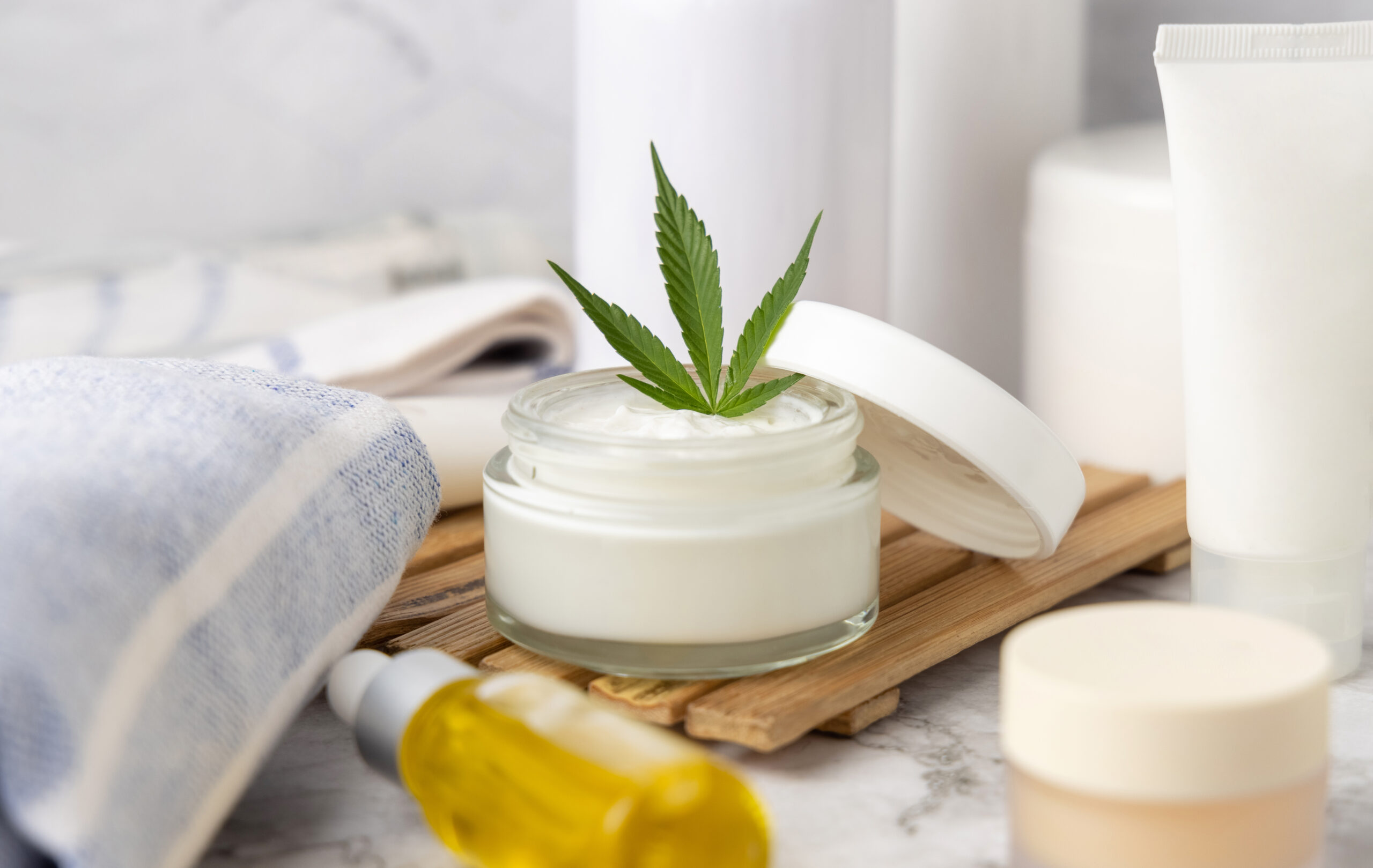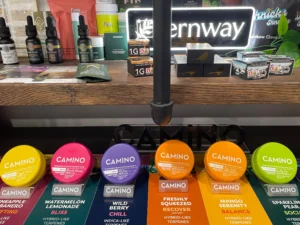Adults living with persistent joint discomfort often search for natural, targeted solutions that won’t interfere with daily tasks or cause unwanted side effects. THC pain relief cream offers localized analgesic and anti-inflammatory effects without the psychoactive “high,” making it an appealing option for individuals in Jersey City and beyond. In this guide, we will examine what triggers joint pain and how inflammation worsens it, define THC topicals and their mechanism of action, highlight key benefits for mobility and skin health, explain optimal usage techniques, compare THC and CBD creams, outline legal purchasing in New Jersey, address safety considerations, and share insights from local users. By weaving clinical mechanisms with real-world experiences and the expertise of Uforia Dispensary, you’ll gain a comprehensive understanding of how to harness THC pain relief cream for lasting comfort.
What Causes Joint Pain and How Does Inflammation Affect It?
Joint pain arises when structures such as cartilage, ligaments, or surrounding tissues become compromised. Inflammation amplifies this discomfort by triggering swelling, heat, and pain-sensitive nerve activation around the joint capsule. Understanding these processes clarifies why topical cannabinoids can interrupt pain signaling at the source and set the stage for exploring targeted relief options.
What Are the Common Types of Joint Pain and Arthritis in New Jersey?
Joint pain in New Jersey adults often stems from degenerative or autoimmune conditions that inflame and erode joint surfaces. Below is a summary of prevalent joint disorders:
| Condition | Key Characteristic | Impact |
|---|---|---|
| Osteoarthritis | Gradual cartilage wear | Stiffness and pain in weight-bearing joints |
| Rheumatoid Arthritis | Autoimmune attack on synovial tissue | Swelling, deformity, reduced range of motion |
| Gout | Uric acid crystal accumulation | Intense flare-up in big toe and ankles |
| Psoriatic Arthritis | Skin and joint inflammation | Painful swelling affecting fingers and spine |
How Does Inflammation Contribute to Joint Discomfort?
Inflammation mobilizes immune cells that release cytokines and prostaglandins, increasing blood flow and pressure within joint tissues. This biochemical cascade sensitizes nerve endings, causing throbbing pain and tenderness. Interrupting inflammatory mediators at the local level can therefore break the cycle of swelling and pain, paving the way to discuss topical cannabinoid applications.
Topical Cannabinoids for Pain and Inflammation
Research indicates that topical application of cannabinoids, including THC, can reduce pain and inflammation by interacting with cannabinoid receptors in the skin. This interaction can provide localized relief for conditions like arthritis.This source supports the article’s claims about the effectiveness of THC topicals for pain and inflammation.
Which Joints Are Most Affected by Arthritis and Pain?
Arthritic changes and overuse typically impact major load-bearing or frequently used joints, including:
- Knees: Carry body weight and absorb shock
- Hips: Support mobility and posture
- Hands and wrists: Enable fine motor tasks
- Shoulders: Facilitate wide ranges of motion
- Spine: Connects the torso and supports nerve pathways
Identifying these vulnerable areas underscores the importance of applying relief directly where it’s needed most.
What Is THC Pain Relief Cream and How Does It Work for Joint Pain?
THC pain relief cream is an innovative topical formulation designed to alleviate discomfort, particularly in individuals suffering from joint pain. Infused with tetrahydrocannabinol (THC), the psychoactive compound found in cannabis, this cream targets localized pain through direct application to the skin. Unlike traditional pain relief methods, which often rely on systemic circulation to deliver relief, THC cream offers a more direct approach by interacting with cannabinoid receptors located in the skin and underlying tissues. This localized action can lead to reduced inflammation and significant pain relief without the psychoactive effects associated with THC when consumed in other forms.
The effectiveness of THC pain relief cream stems from its ability to modulate pain perception through the endocannabinoid system, which plays a crucial role in regulating a variety of physiological processes, including pain and inflammation. When applied topically, the THC in the cream binds to cannabinoid receptors in nearby cells, thereby inhibiting pain signals and providing a soothing effect. Furthermore, many of these creams are often combined with other beneficial ingredients, such as menthol or herbal extracts, which can enhance their analgesic properties and provide additional relief. As the medical community continues to explore the benefits of cannabis-derived products, THC pain relief cream stands out as a promising option for those seeking an alternative, non-invasive treatment for chronic joint pain.
THC pain relief cream is a topical formulation infused with tetrahydrocannabinol that interacts with skin-based cannabinoid receptors to deliver localized relief. By binding primarily to CB2 receptors in peripheral tissues, the cream inhibits inflammatory signals and calms pain neurons without crossing the blood-brain barrier. This mechanism promises targeted analgesia and sets the foundation for exploring broader product distinctions.
What Are THC Topicals and How Are They Different from Other Cannabis Products?
THC topicals include creams, balms, and salves designed for external use and differ from inhaled or ingested cannabis products by producing no systemic psychoactive effects. Instead of entering the bloodstream, active cannabinoids remain in the epidermal and dermal layers to directly modulate pain and inflammation at the application site. Understanding this distinction clarifies why topicals suit users seeking localized relief without impairment.
How Does THC Interact with the Endocannabinoid System for Localized Relief?
THC interacts with the endocannabinoid system by binding to CB2 receptors in the skin and connective tissues. This binding reduces the release of pro-inflammatory cytokines and inhibits the transmission of pain signals along peripheral nerves. The result is decreased swelling and a quieter pain response in affected joints, illustrating the precise molecular basis for topical efficacy.
THC Topicals and the Endocannabinoid System
THC topicals interact with the endocannabinoid system (ECS) by binding to CB2 receptors in the skin, potentially reducing inflammation and pain. This localized action provides relief without the psychoactive effects associated with other cannabis consumption methods.This source explains the mechanism of action of THC topicals, which is crucial for understanding how they provide pain relief.
Why Don’t THC Creams Cause Psychoactive Effects?
Unlike inhaled or oral THC, topical applications do not enter the bloodstream in significant amounts and thus do not cross the blood-brain barrier. Absorption remains confined to local tissues, ensuring that users receive relief at the joint without experiencing cognitive or psychotropic effects. This safety profile positions THC creams as an accessible tool for daily pain management.
What Are the Key Benefits of Using THC Pain Relief Cream for Joint Pain in NJ?
In New Jersey, the use of THC pain relief cream has gained significant attention as an alternative treatment for joint pain. One of the primary benefits of using such topical solutions is their localized effect, which allows for targeted relief without affecting the entire body. When applied directly to the skin over painful joints, THC-infused creams can penetrate the dermal layers to interact with cannabinoid receptors in the body’s endocannabinoid system. This localized action minimizes potential psychoactive side effects that are often associated with other forms of THC consumption, enabling users to experience pain relief while maintaining normal daily functions.
Another advantage of THC pain relief cream is its comprehensive approach to alleviating discomfort. Many of these creams are formulated with a blend of therapeutic ingredients, including other cannabinoids, essential oils, and natural anti-inflammatory components. These synergistic properties can enhance the overall efficacy of the product, providing not only relief from pain but also reducing inflammation and promoting improved joint mobility. For residents of New Jersey seeking an effective non-invasive option for managing chronic joint pain, THC pain relief creams offer a promising solution that is both convenient and aligned with California’s evolving landscape of cannabis wellness.
THC pain relief cream delivers multiple advantages for individuals coping with joint discomfort, including targeted pain reduction, inflammation control, improved mobility, and supportive skin benefits. These outcomes enhance day-to-day function and overall wellness without systemic side effects.
Benefits of THC Topicals
THC topicals offer localized pain relief and can help with inflammation, skin conditions, and muscle soreness. They provide therapeutic benefits without the psychoactive effects of ingested cannabis, making them suitable for daily use.This source highlights the key benefits of THC topicals, which are relevant to the article’s discussion of joint pain relief.
How Does THC Cream Provide Targeted Pain and Inflammation Relief?
THC cream moderates inflammatory pathways by reducing cytokine release and dampening nerve excitability in joint tissues. Users often note rapid onset of soothing sensations and decreased stiffness within minutes of application. This targeted approach contrasts with oral medications that must circulate systemically before reaching the site of pain.
Can THC Topicals Improve Mobility and Quality of Life?
By alleviating pain and minimizing swelling directly at affected joints, THC topicals help restore range of motion and enable individuals to resume activities such as walking, climbing stairs, or gardening. Enhanced mobility supports independence and contributes to improved mental and emotional well-being as daily tasks become less taxing.
Are There Additional Skin Health Benefits from THC Creams?
Beyond joint relief, THC creams can soothe irritated or inflamed skin conditions like eczema and psoriasis. The anti-inflammatory action reduces redness and promotes balanced cell regeneration. This dual benefit makes topical cannabinoids an attractive option for those seeking healthier skin alongside joint comfort.
How to Use THC Pain Relief Cream for Optimal Joint Pain Relief?
Proper application techniques and frequency can maximize the benefits of THC pain relief cream. Learning the best practices helps users achieve consistent comfort and maintain healthy joint function.
What Are the Best Application Techniques for THC Topicals?
- Clean and Dry the skin area thoroughly.
- Apply a Thin Layer of cream directly over the painful joint.
- Massage Gently in circular motions until fully absorbed.
- Allow 5–10 Minutes for the active ingredients to penetrate.
Consistent technique fosters predictable relief and deeper tissue interaction.
How Often Should You Apply THC Pain Relief Cream?
For most users, applying THC cream two to three times daily provides sustained comfort during peak pain periods. Adjust frequency based on symptom severity, allowing at least four hours between applications to prevent buildup. This balanced routine maintains steady modulation of inflammatory signals.
Can THC Cream Be Combined with Heat or Cold Therapy?
Yes, pairing THC cream with heat or cold packs can enhance therapeutic effects. Cold therapy reduces acute swelling before applying cream, while a warm compress afterward promotes deeper absorption. Alternating temperatures and topical application creates a synergistic approach to relieving pain and stiffness.
How Does THC Cream Compare to CBD Cream for Joint Pain Relief in New Jersey?
Comparisons between THC and CBD topicals reveal distinct mechanisms and ideal use cases. Understanding their differences helps users select the formulation best suited to their condition and comfort goals.
| Feature | THC Topicals | CBD Topicals |
|---|---|---|
| Mechanism | Binds to CB2 receptors to inhibit inflammation | Modulates endocannabinoid tone and reduces stress |
| Psychoactivity | Non-psychoactive when applied topically | Non-psychoactive |
| Ideal Conditions | Effective for inflammatory and neuropathic pain | Suited for mild inflammation and skin sensitivity |
| Recommended Ratio | 100% THC or blended with CBD for synergy | Broad-spectrum or isolate formats |
What Are the Differences Between THC and CBD Topicals?
THC topicals directly engage CB2 receptors to block inflammatory enzymes, whereas CBD supports endocannabinoid signaling and modulates multiple receptor systems. Both reduce pain, but THC creams often provide stronger anti-inflammatory action for severe joint discomfort.
Which Conditions Respond Better to THC Versus CBD Creams?
Severe arthritic pain, neuropathic sensations, and intense inflammation typically respond more robustly to THC creams. Individuals with sensitive skin, minor aches, or those seeking gentle maintenance may find CBD topicals adequate for their needs.
Topical CBD for Thumb Basal Joint Arthritis
A study found that topical CBD treatment demonstrated significant improvements in thumb basal joint arthritis-related pain and disability without adverse events.This source provides evidence of the effectiveness of topical cannabinoids for joint pain, supporting the article’s focus on this topic.
How to Choose the Right THC:CBD Ratio for Your Joint Pain?
Begin with a balanced 1:1 THC:CBD ratio to combine anti-inflammatory and modulatory effects. Adjust toward higher THC concentrations for acute flare-ups or greater pain intensity. Consulting a knowledgeable dispensary specialist helps tailor the ratio to individual response and tolerance.
Where and How Can You Buy THC Pain Relief Cream Legally in New Jersey?
In New Jersey, the legal landscape surrounding THC-infused products, including pain relief creams, has evolved significantly with the legalization of cannabis for recreational use. Consumers seeking THC pain relief cream can purchase these products from licensed dispensaries across the state. To ensure a smooth and legal transaction, individuals must be aware of the state’s regulations regarding cannabis. New Jersey allows adults aged 21 and over to buy THC products, but they cannot be acquired from unlicensed vendors, which ensures the safety and quality of the items.
To buy THC pain relief cream in New Jersey, residents may visit a local dispensary that offers a range of cannabis-derived products, including topicals, edibles, and oils. Many dispensaries provide a friendly environment equipped with knowledgeable staff who can guide first-time buyers through the selection process. It is advisable for consumers to review the available options and check the product labels for dosage information and ingredients. Additionally, accessing dispensary websites or utilizing dispensary apps can aid in locating nearby stores, checking inventory, and even placing orders for pickup. Emphasizing responsible consumption, it is crucial for users to be aware of their individual tolerance levels when using THC products for pain relief. Navigating New Jersey’s cannabis regulations ensures access to quality THC topicals through licensed channels. Understanding the legal framework helps adult users make compliant purchases.
What Are the Current New Jersey Cannabis Laws for THC Topicals?
New Jersey permits adult-use cannabis products containing up to 0.5% THC by weight in delta-8 or delta-9 topicals. Medical patients may access higher-strength formulations under the state’s Compassionate Use Medical Marijuana Act. These regulations guarantee product safety and quality testing.
Cannabis Laws in New Jersey
New Jersey permits the legal sale and use of cannabis products, including topicals, for adults 21 and older. Dispensaries are allowed to sell up to one ounce of usable cannabis per transaction, and various product categories are available.This source provides information on the legal aspects of purchasing THC topicals in New Jersey, which is essential for the article’s section on legal purchasing.
Which Licensed Dispensaries in Jersey City Sell THC Pain Creams?
Residents can find reputable selections of THC pain relief cream at Uforia Dispensary and other state-licensed outlets in Jersey City. These establishments offer certified products with transparent potency labeling and batch testing to ensure consistency and safety.
Uforia Dispensary in Jersey City
Uforia Dispensary is a licensed cannabis dispensary in Jersey City, offering a variety of cannabis products, including topicals. They provide a range of products and services to the local community.This source confirms the existence and location of Uforia Dispensary, which is mentioned in the article as a place to purchase THC pain relief cream.
What Are the Purchase Limits and Age Restrictions for THC Creams in NJ?
Adult recreational users (21+) may purchase up to one ounce of cannabis flower equivalent per transaction, including topicals. Medical patients follow doctor-recommended dosage and quantity limits. Age verification at the point of sale is mandatory to comply with state law.
What Are the Safety Considerations and Possible Side Effects of THC Pain Relief Cream?
When exploring the use of THC pain relief cream, it is essential to consider safety and potential side effects. THC, or tetrahydrocannabinol, is the primary psychoactive compound found in cannabis, known for its analgesic properties. Its topical application provides localized relief, which can make it an appealing option for individuals seeking pain management without the psychoactive effects associated with oral consumption. However, users should be aware that THC can still be absorbed through the skin, leading to potential psychoactive effects, albeit generally less intense than when ingested. It is critical for users to consider their sensitivity to THC and start with a small amount to assess how their body reacts before applying more liberally.
In terms of safety considerations, those with certain medical conditions or those taking specific medications should consult healthcare professionals before incorporating THC pain relief cream into their regimen. Individuals with a history of allergic reactions to cannabis or its components should approach with caution as well. Possible side effects may include localized skin reactions, such as redness or irritation, which are generally mild but worth monitoring. Additionally, though rare, some users may experience systemic effects, particularly if they are using a cream with a higher concentration of THC. Overall, while THC pain relief cream can provide effective pain management, awareness of these safety considerations and potential side effects is crucial for ensuring a safe and beneficial experience. THC pain relief creams are generally well tolerated, but awareness of potential reactions and proper usage helps mitigate risks and maintain skin health.
What Are the Common Side Effects of Using THC Topicals?
Some users may experience mild skin irritation, redness, or allergic reactions at the application site. Performing a patch test on a small skin area before widespread use can identify sensitivity issues early and prevent discomfort.
How Do Topicals Differ from Transdermal Cannabis Products?
Topicals remain in surface tissues for localized effect, whereas transdermals penetrate deeper and enter systemic circulation, potentially producing psychoactive or broader physiological effects. Choosing the correct delivery method aligns relief goals with safety preferences.
When Should You Consult a Healthcare Professional Before Using THC Cream?
Seek medical advice if you have a history of severe skin conditions, are taking immunosuppressive medications, or experience unexpected systemic symptoms after application. Professional guidance ensures safe integration with other therapies and avoids adverse interactions.
What Do New Jersey Users Say About Their Experience with THC Pain Relief Cream?
In recent years, New Jersey users have increasingly turned to THC pain relief cream as an alternative for managing chronic pain and discomfort. Anecdotal evidence from local residents suggests a growing trend towards these cannabis-infused topicals, which they report have provided significant relief for conditions ranging from arthritis to muscle strains. Users often highlight the localized effects of THC creams, noting that they can apply the product directly to the painful area, enabling targeted relief without the psychoactive effects associated with other cannabis products. This localized application has paved the way for those who may be hesitant to partake in traditional cannabis consumption methods, allowing them to access pain relief in a discreet and manageable way.
Furthermore, feedback often emphasizes the cream’s ease of use and quick absorption, which many users find appealing in their daily routines. While experiences can vary, a considerable number of users claim to experience relief within a short period after application. Reviews frequently mention a reduction in inflammation and an overall improvement in mobility, suggesting that these products not only alleviate acute pain but also enhance quality of life. As a result, more individuals in New Jersey are expressing satisfaction with their THC pain relief cream experiences, fueling interest and discussions around its potential benefits in the broader context of alternative pain management therapies. Local testimonials highlight real-world outcomes and build confidence in topical cannabinoid solutions. Community feedback showcases practical benefits and varied success stories.
How Have Jersey City Residents Benefited from THC Topicals?
Many users report faster onset of pain relief, reduced reliance on oral painkillers, and improved joint flexibility. These firsthand accounts illustrate how targeted cannabinoid therapy can transform daily activities and comfort.
What Are the Most Common Positive Outcomes Reported?
In a diverse range of contexts, whether in healthcare, education, or therapeutic settings, positive outcomes have become a focal point for evaluation and improvement. Among the most commonly reported outcomes are enhanced emotional well-being and improved physical health. Individuals often note significant reductions in stress levels, anxiety, and depressive symptoms when participating in structured programs like counseling or mindfulness practices. These improvements not only contribute to a healthier mindset but also promote a proactive approach to personal well-being, allowing individuals to develop coping strategies that effectively manage their emotions.
- Noticeable decrease in swelling and stiffness
- Enhanced ability to perform routine tasks without discomfort
- Long-lasting relief that supports active lifestyles
These patterns of success underscore the practical value of topical THC formulations.
Where Can You Read Reviews and Testimonials for THC Pain Creams?
Reputable dispensaries, online community forums, and consumer review sites offer aggregated feedback on specific THC creams. Reading diverse user experiences helps new customers select products aligned with their pain profiles and personal preferences. Harnessing THC pain relief cream offers Jersey City adults a natural, discreet, and effective path to easing joint pain and inflammation. By understanding the mechanisms of localized endocannabinoid interaction, comparing THC and CBD formulations, and applying best practices for use, individuals can optimize comfort and mobility. With Uforia Dispensary’s expertise and the support of state-licensed products, New Jersey users gain access to quality solutions that promote both pain relief and skin health. Explore targeted topical therapy today to reclaim active, pain-free living.
Conclusion
Utilizing THC pain relief cream provides Jersey City residents with a natural and effective solution for managing joint pain and inflammation. This targeted therapy not only alleviates discomfort but also supports skin health, enhancing overall well-being. By understanding the benefits and proper application techniques, users can maximize their relief and regain mobility. Discover the range of quality THC topicals available at Uforia Dispensary to start your journey towards pain-free living today.





